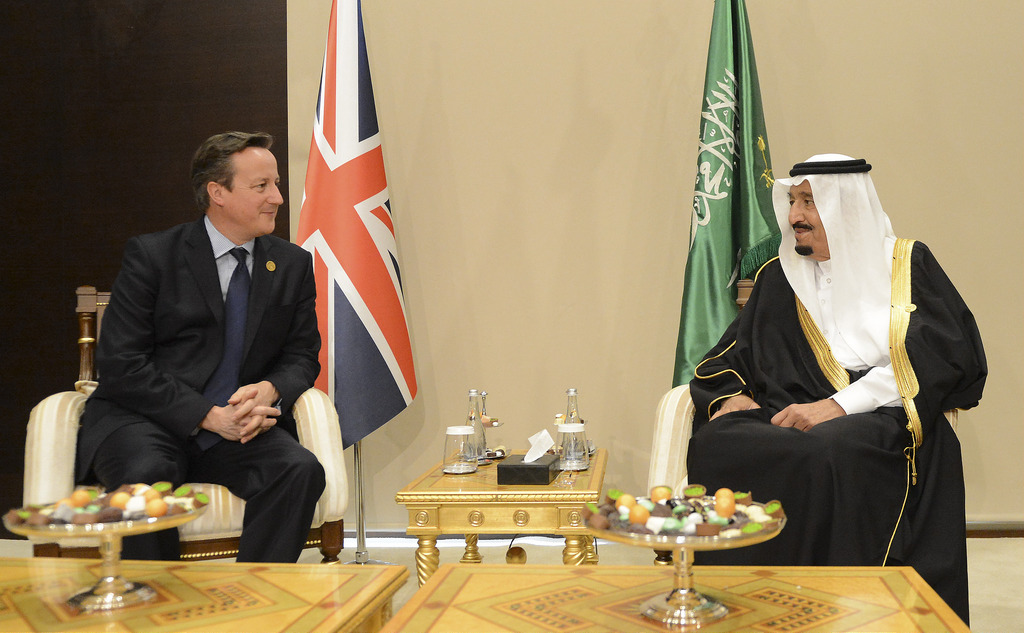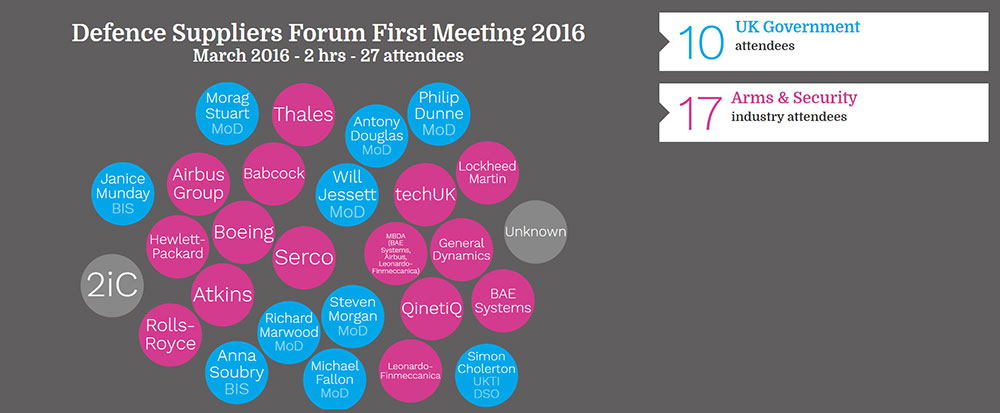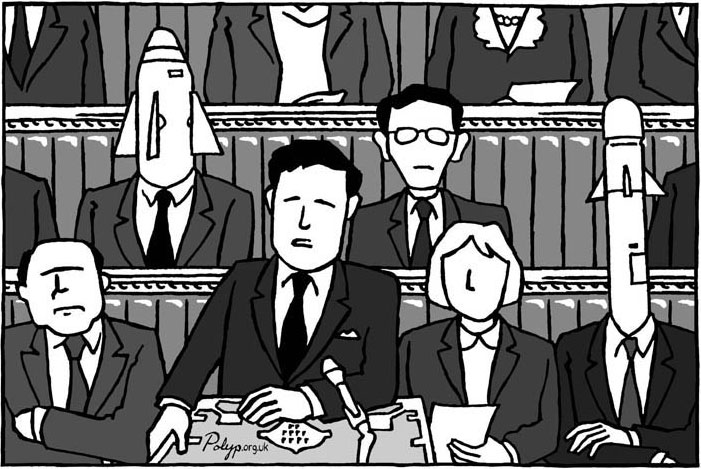Arms company and military influence over government warps government priorities, leading to the promotion of corporate interests over policies that would protect the security of people in the UK and elsewhere.
We can see this influence in action when
- Arms sales are prioritised over arms controls and human rights
- Narrow and dangerous visions of security dominate
Saudi Arabia
The UK government fails to follow its own rules on controlling arms sales; instead its focus is on securing more.
A stark example of this is the government’s continued arms sales to Saudi Arabia, even as UK weapons are used in the devastating bombing of Yemen, in clear violation of the UK’s own rules on arms sales, and international law. The UK government has licensed more than £5 billion of weapons sales to Saudi Arabia since its bombing of Yemen began, and refuses to stop the sales.
Saudi Arabia’s contracts with the UK government and BAE Systems are the UK’s biggest ever export deals and successive governments have stopped at nothing to protect them.
The government’s campaign to sell the Eurofighter Typhoon aircraft now bombing Yemen has involved interventions at the highest level – from Tony Blair’s intervention to stop a corruption investigation into arms sales to Saudi Arabia and Prince Charles’ infamous sword dance for the Saudi king.
CAAT’s political influence browser shows how the machinery of government was mobilised at key moments in the sales campaign to secure the deal.
For example, when negotiations for the Eurofighter Typhoon stalled after Saudi Arabia was insulted
by a parliamentary inquiry into UK relations with Saudi Arabia and Bahrain, David Cameron visited the country to smooth ruffled feathers
, followed within a month by an emergency, unpublicised visit by Defence Secretary Philip Hammond. This followed a succession of internal meetings between key players in the deal. See for example the Secretary of State Saudi Visit Pre-Brief meeting, where Philip Hammond and his special advisors met Ian King and Guy Griffiths of BAE, with Susanna Mason and other senior staff from the MOD.
One of the biggest recent political threats to UK arms sales to Saudi Arabia was the murder of Saudi journalist Jamal Khashoggi in the Saudi consulate in Istanbul in October 2018. The murder was committed by a hit squad led by close aides to Saudi Crown Prince Mohammed bin Salman, who is widely believed to have ordered the killing. The murder of Khashoggi caused an international outcry, and led to a number of countries suspending arms sales to Saudi Arabia – but not the UK.
Indeed, within weeks of the murder, the UK International Trade Secretary Liam Fox met with top executives from BAE Systems to discuss the UK’s response to the killing. While few details about the meeting are available in the public domain, it is clear that a key priority of the UK government was that these events should not be allowed to disrupt the flow of arms.
Increasing Insecurity
The UK promotes a narrow and damaging view of security which prioritises military responses and the projection of power and fails to address the systemic drivers of insecurity – as perpetuated in the 2015 National Security Strategy.
Overt lobbying is just one part of political influence. The influence of the arms industry is far more insidious: from the thousands of hours of meetings, to the revolving door between companies, military and government, to the industry bodies within government itself.
This influence of this network of relations and massive integration doesn’t just warp government priorities, but limits and narrows the debate on one of the most important issues facing us all, preventing a proper debate about policies that would do more for the long-term security of people in the UK and elsewhere.
The government’s security strategy promotes the arms trade, arguing that
responsible defence and security exports… are essentialbecause theyunderpin long-term relationships with our partners’ national security organisations, and help us deliver wider foreign policy objectives.The claim lacks any evidence to support it. The exports feed militarisation and generate a political dependency on the favour of other governments, which constrains and undermines foreign policy goals.
– Rethinking Security: a discussion paper, Ammerdown Group, May 2016




